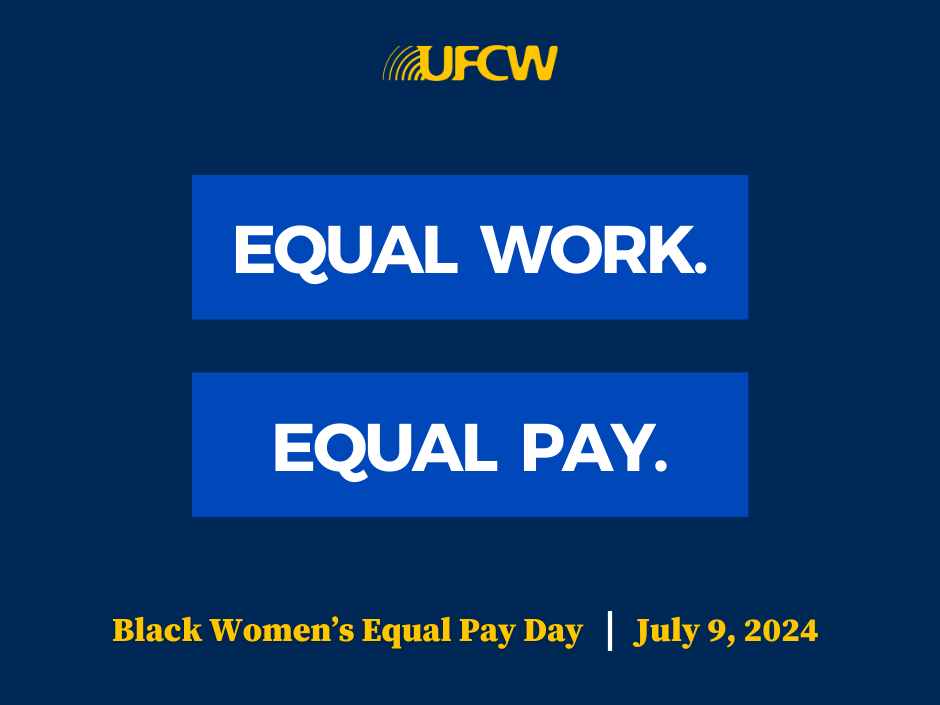Help us draw attention to wage disparities on Black Women’s Equal Pay Day on Tuesday, July 9. This is the day when Black women’s pay finally catches up to what white men were paid last year.

Since our country’s founding, racism and sexism have shaped the structure of our economy, laws, and policies. As a result, pay discrimination and occupational segregation (the segregation of women into low paid and undervalued jobs) have long inflicted harm upon Black women in the workforce. The resulting injustice affects individuals on a personal level and reverberates through their children, families, communities, and our economy. Changing this is intricately tied to fair and equitable wages, better jobs, and equal opportunities. The need for both equal pay and higher pay is urgent.
Black women who work full-time, year-round are paid 69 cents and all earners (including part-time and seasonal) are paid 66 cents for every dollar paid to non-Hispanic white men. These hard-working women are also more likely to work for employers that provide little job security, few benefits, and limited opportunity for advancement.
The UFCW is a member of the board of directors of the National Committee on Pay Equity, which is calling on supporters to advocate for fair pay on Equal Pay Days. Here are some ways you can support and advocate for equal pay:
1. Raise Awareness: Share information about Black Women’s Equal Pay Day on social media, in your workplace, or within your community. Educate others about the gender pay gap and its impact on Black women.
2. Advocate for Policy Changes:
o Support legislation that promotes pay equity, such as the Paycheck Fairness Act.
o Engage with organizations and advocacy groups working on pay equity issues.
3. Promote Transparency:
o Encourage employers to be transparent about pay practices.
o Advocate for salary transparency within your workplace. When employees have access to salary information, it helps identify and rectify pay gaps.
4. Support Black women in the Workplace:
o Mentor and sponsor Black women to help them advance in their careers and negotiate fair compensation.
5. Challenge Stereotypes and Bias:
o Be aware of unconscious biases related to race and gender. Challenge stereotypes that may affect hiring, promotions, and pay decisions.
o Promote diversity and inclusion. A diverse workforce benefits everyone and contributes to a fairer pay system.
You can get more information about Black Women’s Equal Pay Day here.
